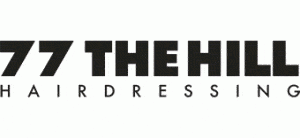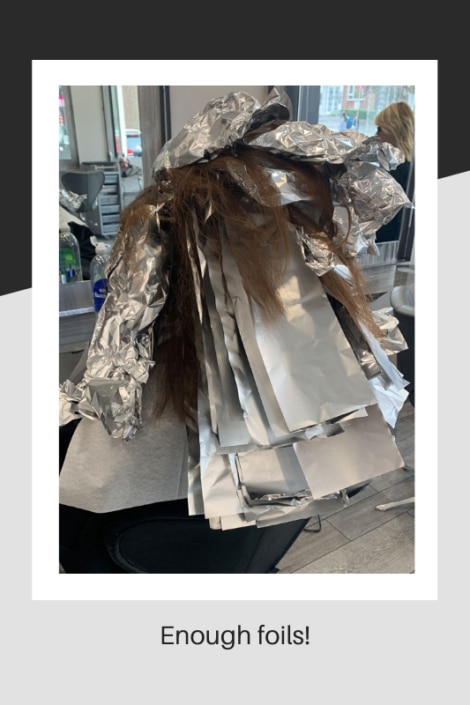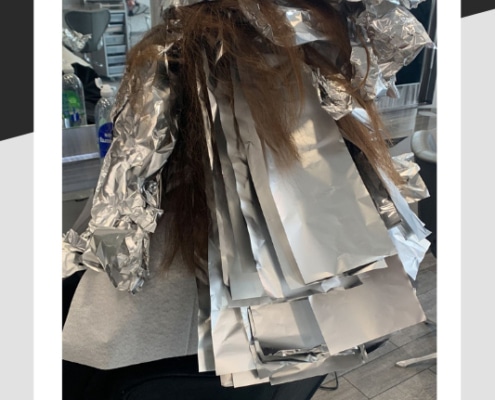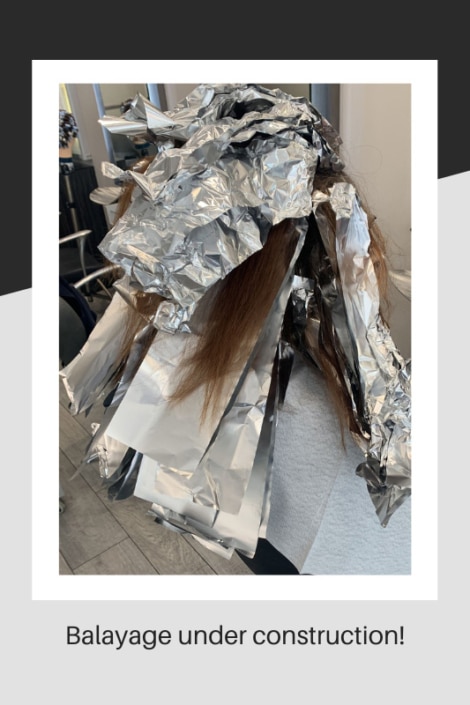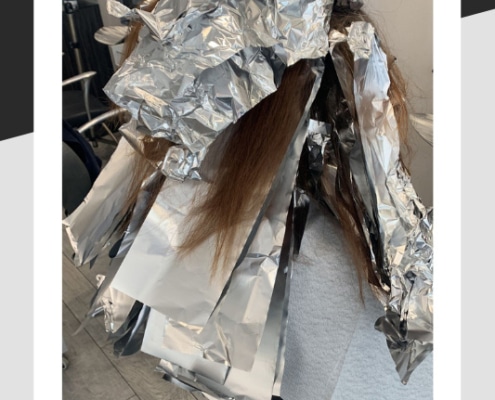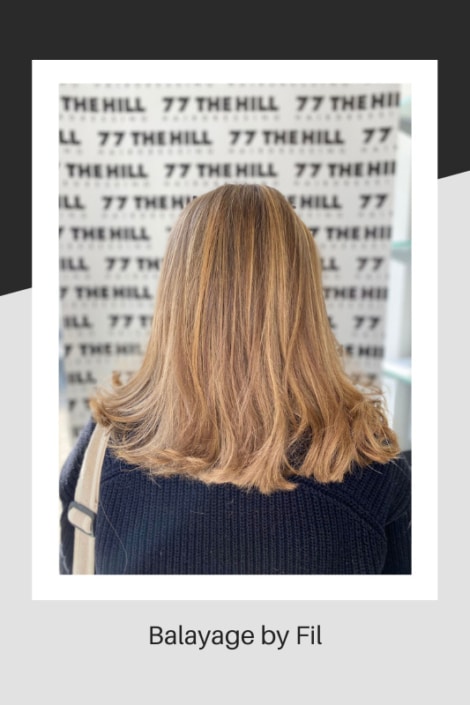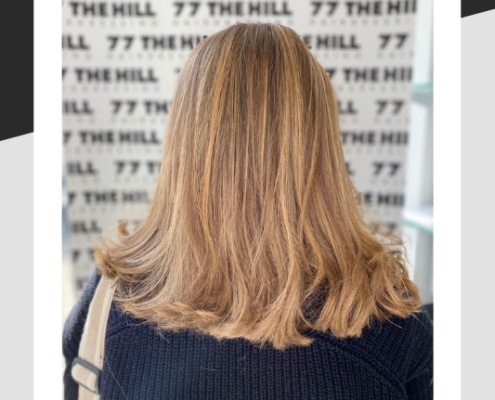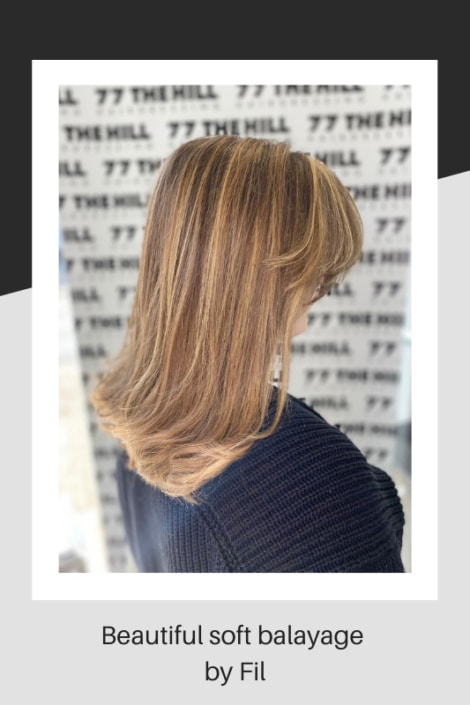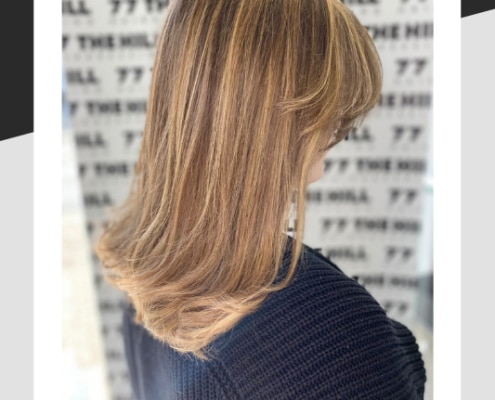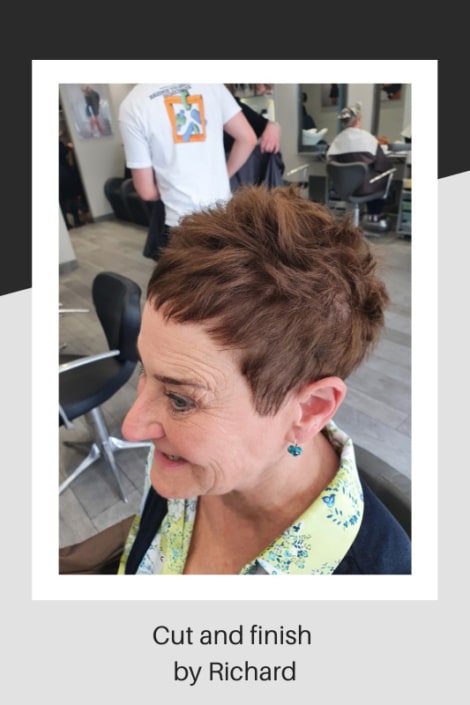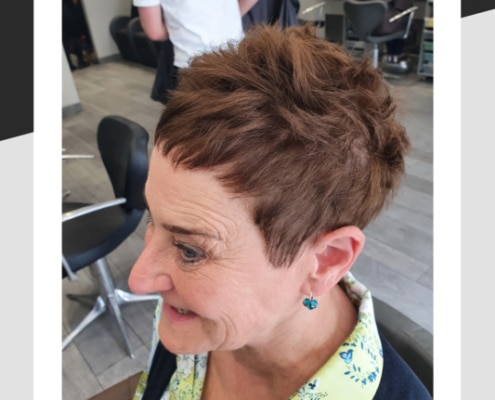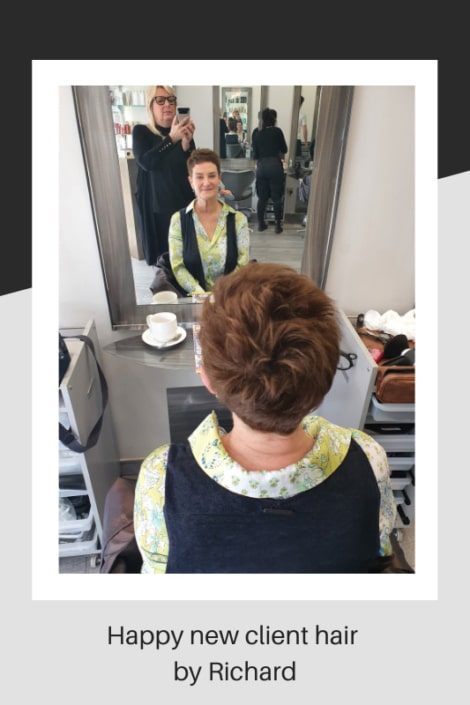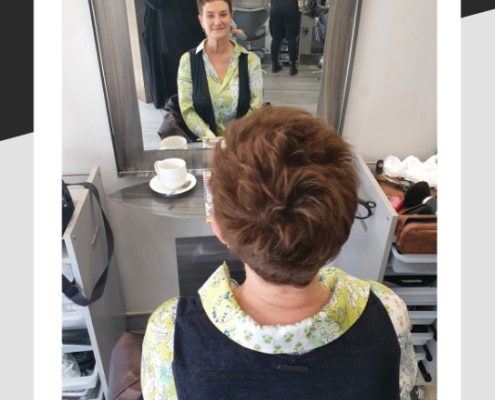What’s your hair type?
We all know our own hair type – it may be fine, abundant, thick, curly, long or short!
We also know that as we age, our hair changes too.
Ladies know this only too well, especially as we approach or go through the menopause.
If we look at how our hair changes and why, it becomes much easier to accept and understand. Making it easier to look after and looking at its best.
Firstly, hair colour fades as we age. This can be hormone related or just the inevitable ageing.
The chemical eumelanin produces dark colour, while phaeomelanin contributes to light hues. When these two blend in varying degrees, an array of hair colours occurs. As we age, these pigment-producing cells deteriorate, leaving behind grey hair.
Every person will age differently and the process of going grey can start quite early. This can be hereditary and run through families.
Hormones
Our hair changes with hormone fluctuations too. This is particularly true of for women but can affect men too.
A good example of this is pregnancy. Women produce much more oestrogen during pregnancy which has a strengthening effect on our hair. This results in less shedding, making hair thicker and in most cases much shinier.
Very occasionally, it has a plumping effect which can make curly hair appear straighter. It can also produce more body hair too, especially around the belly. This disappears gradually once the level of oestrogen goes back to a more normal level.
After the giving birth, it can be alarming to lose a lot of hair – however, it is only the natural loss of all the extra hair that was made during pregnancy.
During the menopause, oestrogen levels drop dramatically, which can sometimes make hair thinner and less shiny. It happens to many people during this change of life.
There are always treatments and supplements that one can take to ease the process but obviously it must be done under the guidance of a G.P, pharmacist or your stylist.
There are of course other reasons for hair loss and if you feel like you don’t fall into the above category, then a visit to a trichologist might be the best course of action.
